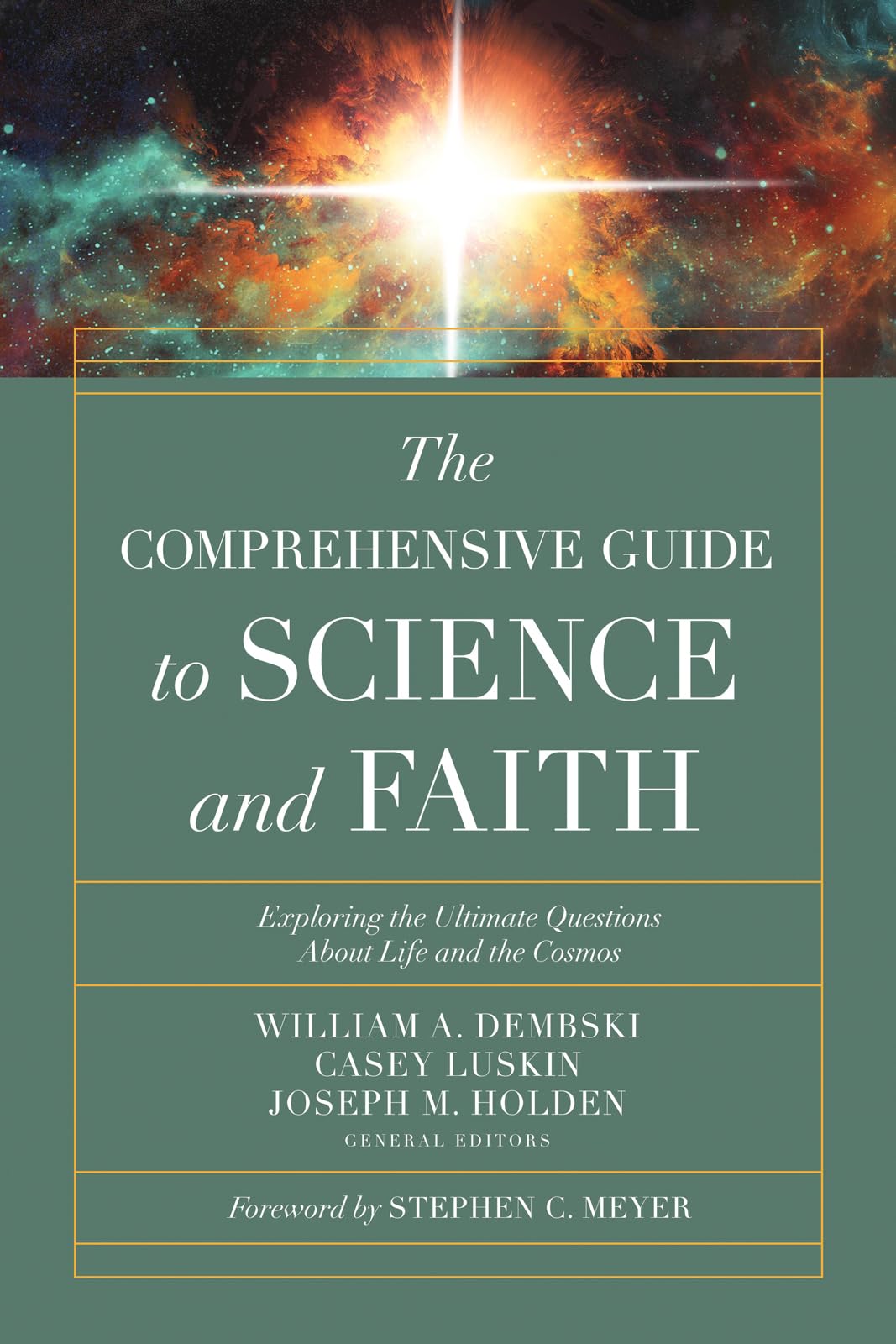Customer Services
Copyright © 2025 Desertcart Holdings Limited
Desert Online General Trading LLC
Dubai, United Arab Emirates


The Comprehensive Guide to Science and Faith: Exploring the Ultimate Questions about Life and the Cosmos
E**C
Excellent
Excellent collection of writings on science, philosophy and religion and how Christianity and science are compatible. The book is packed with relevant info on so many fronts, is very well written and deserves a place on anyone's shelf. Darwinism, intelligent design and philosophical issues are delved into thoroughly, all in all just a great purchase.
E**M
Excellent overview of Intelligent Design with quality scholarship
This text offers a broad overview of the critical issues in modern science, utilizing articles from qualified scholars in the Intelligent Design community. While broad in scope, the reader is given well cited articles on the important issues for a decent grasp of the fundamental issues in modern science, and introduced to the scholars and literature so she may further pursue as desired.
L**S
Excellent review of ID
Prior reviewed criticize the emphasis on Intelligent Design, but if you have followed the movement most of these authors are prominent proponents of ID. I'm a lay person that enjoys reading and following the topic. It's interesting that often the debate isn't about science, but about philosophy and worldviews operating in the background.This book is a collection of essays that go through quite a variety of topics. If you know many of the authors, their chapters are often summaries of their own books and discussions, so they cover a lot of ground quickly.I will add that the book is probably better for someone who has a basic grasp of the arguments involved. It's not necessarily meant to be beginner friendly. I will also add that it's a reference work - double column and small print. Be ready with your reading glasses. :-)Overall, it's a great read if you have a passion for the topic.
J**S
Good information, but leans heavily toward a defense of intelligent design
I am a biologist with advanced degrees in biology and a minor in chemistry having worked for 30 years in the field of wildlife ecology. I have spent a lot of time considering evolution (random, unguided evolution of complex life forms from a single common ancestor in the distant past), evidence that seems to support the theory, and data that exposes weaknesses of the theory. This book does a great job highlighting technical, peer reviewed research that exposes weaknesses/insufficiencies or outright errors of the "Modern Synthesis" or "Neo-Darwinism" (Darwinism plus Mendelian genetics). It also does a great job of exposing the intense bias and dogma that is so rampant in the biological sciences. It simply is not accurate to think of "science" as it is practiced by humans as "pure" or "infallible". It is most certainly not. In fact, the default of many publishing biologists is inherently and explicitly biased in that they assume the very mechanisms that they should be testing. Additionally, anyone who challenges those "sacred" assumptions is cast out or marginalized at best. When data is clearly pointing in a direction that does not support our assumptions, good scientists ask why and dig more deeply to discover what is really going on. Too often, "scientists" assume their assumptions are valid and look for ways to fit the data into their assumed world view. A good scientist considers ALL the data and ALL possible explanations of the data. This book does a good job of highlighting this failure of many working in the biological sciences. However, it leans disproportionately toward Intelligent Design. Intelligent Design may very well end up being the best explanation, but there are many competing schools of thought out there today that could also end up being the most congruent explanation for the data. Given recent discoveries in epigenetics and our new understanding of how DNA is NOT the master determiner of our traits and behaviors (i.e. we are not simple vessels for our genes), it certainly looks like "random mutation and natural selection" is no longer a plausible mechanism for all we see in reality. The "selfish gene" perspective promoted by Richard Dawkins is being dismantled by geneticists and molecular biologists today. Similarly, his "blind watchmaker" doesn't seem to be as visually impaired as he states. So, we seem to be in the middle of a paradigm shift, but I just don't know which theoretical framework will emerge as the "best fit" for the data.All of that said, this is a good reference to have on one's shelf. It provides a broad treatment of many topics in the discussion of science and faith.
B**N
Great info in one resources
Great summary of major topics by a variety of experts all in one place.
Trustpilot
4 days ago
2 months ago